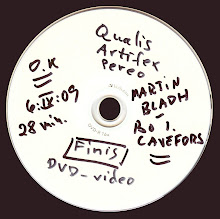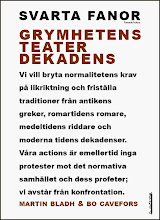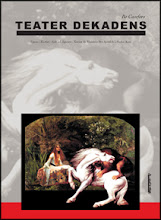
+
+
Bo I. Cavefors
THE BOY WITH THE BELT
Pup often takes the bike to meet his stepdad at the Falsterbo train, which steams into the station at about five in the afternoon. Sometimes, Pup waits in wain.
It is on just such an afternoon, when he’s ten years old (his birthday was in November), that one of the young men who also ride that same train every day between their summer houses and their work in Malmö leaves the station with him, puts his arm around his shoulder and strokes his neck. They take a detour among the sand dunes to watch the sea.
At the lighthouse, the young man unbuttons Pup’s trousers, a pair of tight grey flannel summer slacks, knees down in front of him and takes his cock in his mouth. Pup meets this young man several times that summer, and the summers that follow, and learns to enjoy being fucked, and the tickle of the young man’s tongue. It feels good, and it feels safe when the young man holds his butt in his warm hands. And Pup becomes aware of his power of the lover, that a grown man is before his feet.
A few years later, when Pup now in a boarding school on the southern outskirts of London, meets Jacob and Michael, who are both his age, he quickly grows into a more varied homosexuality. And he learns to love the whip, whipping and being whipped before they fuck and suck cock, kiss and hug. The need for whipping just comes to them. None of the boys have seen a whip, other than their parents’ riding crops, and never have they thought that a riding crop could also be used to whip queer boys on their butts. Without a riding crop, the belt becomes their natural tool when they want to show each other their love in a more forceful fashion. Pup loves the smacking sound when the belt is drawn from the loops of Michael’s trousers and hits the butt. It hurts so good!
On leave from school, when Pup visits his mother in Malmö, he goes into the bushes by the birdcages in Palace Park for gay sex, There too he craves the belt before he is sucked off or fucked or strokes men’s hairy chests, kneeling to worship and stroke and suck their cocks.
Faggotry fast becomes his routine for ecstasy, for beauty; it’s impossible to resist the desire to use or to be used by a grown man’s body.
What separates Pup’s cock-chasing from the boy prostitutes who are not gay, but do it for the money? Morally, ethically, there’s nothing that separates the street boys from the mama’s boys. For Pup and other gay boy it’s the sexual experience, the taste of semen, men’s bodies of flesh and blood, that’s irresistible. For the boy prostitute the sex takes a back seat to the money, but he too enjoys the break from is lonely, daily jerk-off sessions.
Does Pup tell his mother that he’s having sex with grown men? Of course not. He knows it would turn the world turned upside-down, there would be tears, he would have to reveal everything. He knows he would never take that kind of commotion. He doesn’t want to see his mother cry. He doesn’t want to be humiliated in front of his stepdad. He knows he is intelligent enough to know what he’s doing is right, because he enjoys it. With every visit to the park his confidence grows. He grows.
As Pup, Jacob and Michael, now ninteenish, have finished school, and they have gay sex and offer themselves up in Hyde Park, just a few stone’s throws from Park Street, where they share an apartment, they become competition to the other young prostitutes their age who now lose market share to these well-groomed upper-class boys who don’t come to the park to make money but to offer themselves up for their own pleasure, a need, and so are also more inventive, more free. At the same time, many of the men who come to the park looking for young dicks prefer the regular prostitutes. Technically, Pup and his friends too are prostitutes when they’re in the park out of lust, in total freedom, open to new experiences, new variations. And they love the mystique of the park after dark, the shadows of the men hunting them down, the naked bodies, the sounds of the city, the wet grass.
Earlier published in Destroyer, Journal of Apollonian beauty and Dionysian homosexuality, #6, 2008.
Copyright©Bo I. Cavefors 2008.

















